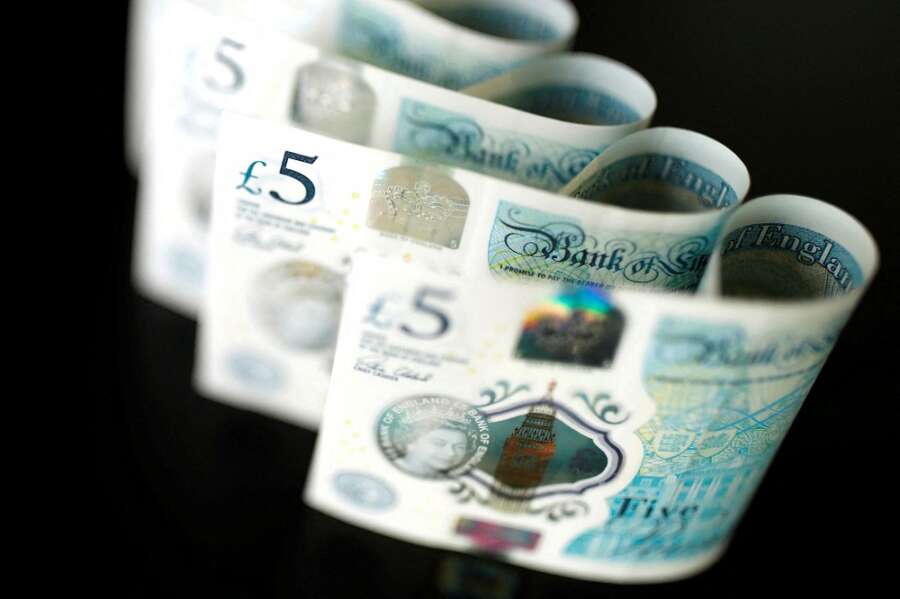
LONDON (Reuters) – The British pound was little changed on Tuesday, pausing after a slide to its lowest levels in nearly two years on signs that a weakening economy will force the Bank of England to slow its interest-rate hiking cycle.
At 0825 GMT, the pound was flat against the U.S. dollar at $1.2328, just above its lowest level since June 2020 of $1.2262 reached on Monday.
Against the euro, sterling was little changed at 85.75 pence, near its lowest since December.
“The pound is finally finding some stability after a rough couple of weeks,” ING analysts said in a note.
“Some stabilisation in sentiment should offer additional support today, and possibly help a return to the 1.2500 mark in sterling/dollar.”
On Thursday, the BoE raised its benchmark interest rate to 1.0% but said it saw the economy shrinking in 2023 and a near 1% fall in gross domestic product in the final quarter of 2022.
Markets are currently pricing in a further 110 basis points of tightening from the BoE this year, taking the benchmark rate to just above 2.0%.
Further evidence of the worsening growth outlook was seen on Tuesday after two reports showed British consumer spending stuttered in April as the cost-of-living crisis affects consumption.
The British Retail Consortium said total retail spending among its members – mostly large chains and supermarkets – was 0.3% lower in April than a year earlier, the first fall since January 2021 when the country was under a COVID lockdown.
Data from payment processor Barclaycard, covering a broader range of spending, showed outlays on essential items grew by slightly less in April than in March.
Focus was expected to turn to the British government’s plans for the new session of parliament, expected to be outlined later in the day.
Analysts said the main focus would be on what the government says about the Northern Ireland Protocol, which governs post-Brexit trade between the province and the rest of the United Kingdom.
Any signs in the agenda that the government was introducing legislation that overrides some elements of the protocol, would be negative for sterling, RBC Capital Markets said.
(Reporting by Samuel Indyk; editing by Dhara Ranasinghe and Emelia Sithole-Matarise)


